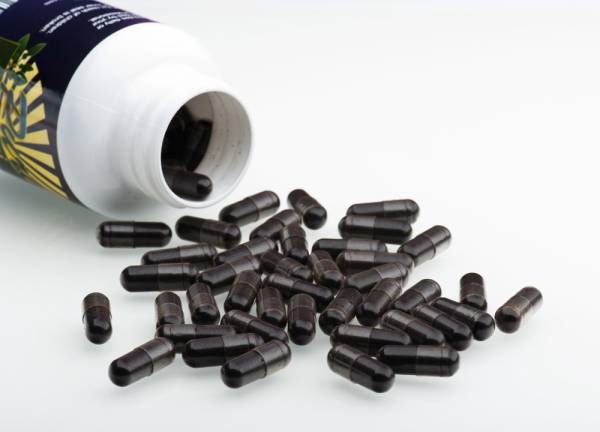With the exception of plyometrics I don’t think there is any other topic in training that is more widely misunderstood than supplementation. I get asked frequently what’s the best thing to take to become a world champion, or some other lofty goal, and my answer never makes anyone happy: If your habits don’t match your goals you need to adjust them until they do.
Let’s look at a few things before we get down to what works and what doesn’t. We’ll call this the big pyramid.
- Nutrition is the underlying base for all supplementation. Remember, these are dietary supplements; things to add into or onto your diet to make you perform better. They are not diet replacements.
- No matter how hard you work, at the pointy end of the field, you cannot out train poor diet choices.
- If basic nutrition being in place is the base layer for our performance pyramid, then the next layer is training. No use having the world’s cleanest diet and then training like a fool.
- Above that layer is lifestyle. If you eat great and train like a champion, you still won’t get far if you’re burning the candle at both ends, out chasing skirts all night, or trying to stick half a powdered rain forest up your nose. Get a minimum eight hours sleep every night, quit hanging out with your party hard friends, and realize that if performance is your goal, then your life needs to reflect it.
- At the very tip of this pyramid are supplements. While they may make some difference if you use them to cover your failings in the lower levels, if you really want to see your money put to good use then you need to have all the preceding layers strongly in place. Only then will your supplements really make a difference.

I see so many people fooled by marketing hype who spend so much on supplements it makes my head hurt, but they’re out drinking every night, sleeping a few hours, and eating a pile of junk every day. You’re simply not going to be able to beat me when you’re relying on the very tip of your pyramid as your base and I’m using the entire thing!
Even within this final level of supplementation there are levels:
- Multivitamin – Sadly, the quality of fresh food has gone downhill dramatically over the last two decades. Because of this, even if you are eating a well balanced diet and consciously get as many different fruits and vegetables in as you can, you’re still likely going to need to supplement just to cover all your bases. I currently take a multivitamin in the morning, and then also take zinc and vitamin B at night. Over the last few weeks since starting this regime I’ve noticed a huge difference in body composition, although some of that could be down to ensuring I am getting eight hours sleep at night.
- On the level just above a basic multivitamin is fish oil. Seriously, if you’re not taking this, start now. There’s so many studies on this stuff it just blows my mind people aren’t using it more. For those with sensitive stomachs, there are even versions now that reduce reflux.
- Along with fish oil I also take vitamin D. The reasons are simple – we simply don’t get outside enough and there are many positives from increasing your vitamin D intake.
Consider these three the base level of your supplement pyramid. All the rest comes first: basic nutrition, training, and lifestyle. Then worry about these. Get these nailed down and then worry about the rest, which we’ll call the little pyramid.
My list of what I think of as useful supplements is quite small. It’s quite small because the majority of supplements simply do not work.
- High quality protein powder – As I wrote in An Idiot’s Guide To Post Workout Recovery Drinks, adding protein into your carbohydrate mix post-workout speeds absorption and therefore recovery. I won’t go into amounts, because that is an argument for another day, but to offset muscle breakdown during and after exercise getting some protein in quickly is a good idea. It won’t help you get big, not by much; you’ll need to have your diet properly sorted out for that (remember, it’s the base level?) but it will help you get into session number two for the day in better shape.
- Creatine – This isn’t for the reason most people use it. I’m not trying to be bigger or stronger; I’m using it to make my brain work better. Studies show that because our diets are lower in quality red meat than they were previously, most of us don’t have high enough levels of creatine in our bodies. The research shows 5g of creatine daily is a good way to maintain mental acuity as you age. So, a teaspoon into a recovery drink once a day serves this purpose.
- Sports drinks – For many these are just a quick way to stack on weight. I tear my hair out every time I read that someone gained weight when they took up running. Then they add that for their half hour run they fuelled it with a bottle of Gatorade and a recovery drink – enough fuel for me to run for two hours! If your session is under two hours, drink water. If it goes over two hours, then you may need to look at a sports drink. I tend to buy powder and mix my own at half strength to speed absorption and make sure my stomach doesn’t get unsettled from too many simple sugars all at once. Most sports drinks these days will have added electrolytes to help stave off cramps. Again, for sessions longer than two hours in hot weather this is helpful, otherwise stick to water.

That’s it. Save your money on supplements and spend it on the best quality raw food you can find. Once you’ve nailed down the nutrition part – and when you reach your goal body composition we’ll call that nailed down – then get everything else in order. Nutrition, sleep, lifestyle, and then add in supplements. The basics first: multivitamin, fish oil, and vitamin D. Then worry about the other stuff.
When you’ve got the basics nailed down of both pyramids you’ll actually see that a few well thought out additions make a tremendous difference. But don’t try to use them to replace diet, training and lifestyle.






